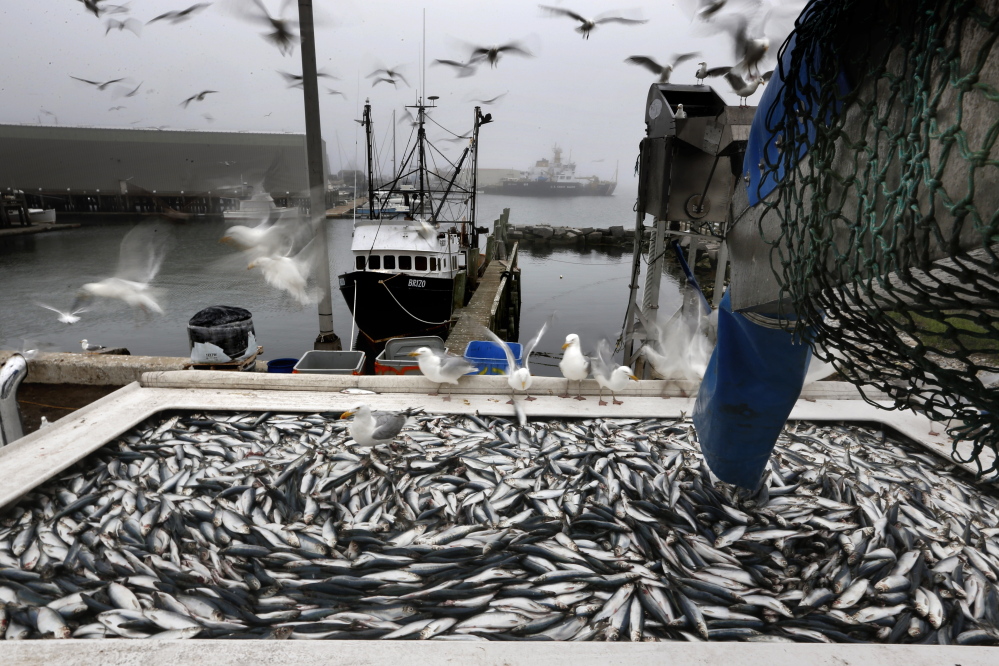PORTLAND — Federal regulators are considering a slight cut to commercial fishermen’s catch limit for Atlantic herring, a fish that is important both to the industry and the ocean’s food web.
The small fish gather in schools that can number in the millions, and are a critical food source for bigger fish, seals and whales. They also are important to humans as food and bait.
The National Marine Fisheries Service might reduce the herring catch limit by about 3 percent to slightly less than 105,000 metric tons. The limit was a little less than 108,000 metric tons for the 2013 to 2015 period; any new limit would apply to the years 2016 to 2018.
The proposal is up for public comment until July 21.
The herring fishery takes place off of New England and the mid-Atlantic, but is principally based in Maine and Massachusetts, with a substantial amount of herring also coming ashore in Rhode Island and New Jersey. It was worth a little less than $30 million in 2014, when fishermen caught about 92,000 metric tons.
Herring is especially important to the fishing industry as lobster bait, and it is sometimes sold as canned fish for human consumption. Fishermen of other species, such as cod and tuna, have said in recent years that the large trawlers that fish for herring have the ability to adversely affect other species.
Herring fishermen are allowed a certain amount of accidental catch of haddock every year, another important commercial species. The New England Fishery Management Council agreed Wednesday to consider reviewing the bycatch cap. Much of the discussion centered on raising the cap, but some members of the cod fishing industry said that would be unwise.
“The groundfishery relies on haddock for a big chunk of our revenue,” said Ben Martens, executive director of the Maine Coast Fishermen’s Association.
The council is also working on an amendment to better address the role Atlantic herring plays in the ecosystem. It discussed the amendment Wednesday and staff said it is likely to be implemented in 2018.
Send questions/comments to the editors.



Success. Please wait for the page to reload. If the page does not reload within 5 seconds, please refresh the page.
Enter your email and password to access comments.
Hi, to comment on stories you must . This profile is in addition to your subscription and website login.
Already have a commenting profile? .
Invalid username/password.
Please check your email to confirm and complete your registration.
Only subscribers are eligible to post comments. Please subscribe or login first for digital access. Here’s why.
Use the form below to reset your password. When you've submitted your account email, we will send an email with a reset code.